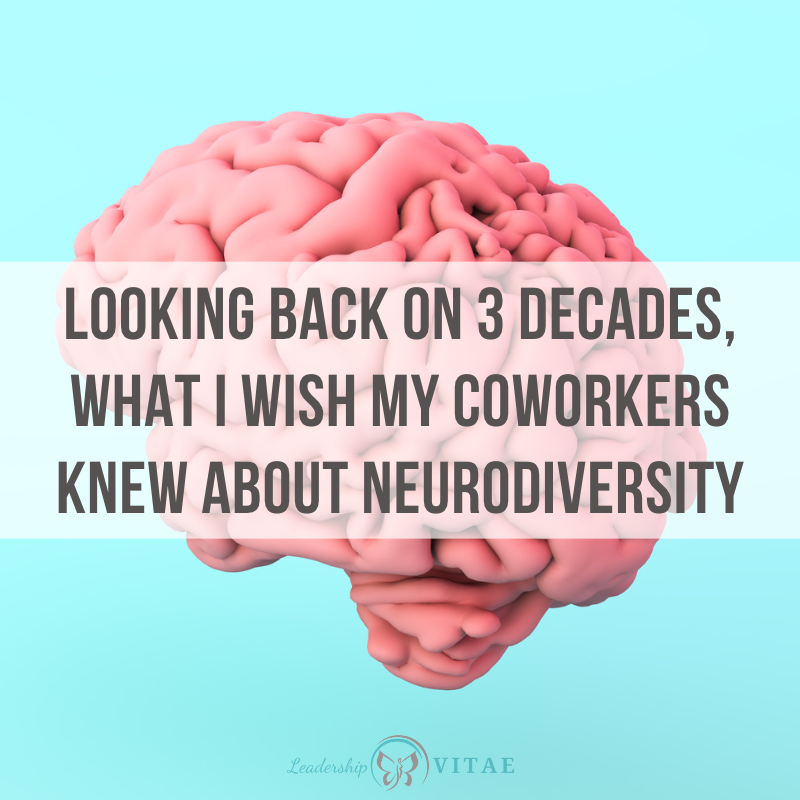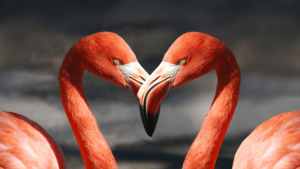
I long suspected that I had ADHD. I certainly was “accused” of it many times over the years. Even my executive coach one day interrupted something I was about to say and said “You have ADHD. I know.”
At the time, I wasn’t ready to accept the diagnosis. I was functional enough in work and life. Successful by all measures. The struggles I had at work and home were either seemingly not tied to ADHD or were helped by having a partner (albeit an often resentful one) who would fill the gaps.
What I didn’t really expect until recent years was Autism. I recall a friend sharing about her son, who was diagnosed with Asperger’s Syndrome (no longer used, but was appropriate at the time). That was the first time I heard something that seemed close, but still not quite right.
It was when I was working at my last company that things came to a head. I had yet another conversation where I was receiving one message directly, and I was getting another one via other channels. The culture was passive-aggressive and I struggled to navigate conflicting signals between what I was being shown and told.
I called my father in between meetings because I couldn’t face anyone until I got out how I was feeling. It was overwhelming and I quickly found myself in tears. “What lesson did everyone else get that I missed? Why is this so hard? I don’t understand and I don’t know how to do this anymore.”
The struggle is real
“This” was peopling. I’ve struggled my entire life with interpersonal interactions. The military was relatively easy to navigate and understand. Filled with stoics, rules, and routine, it was a good first working environment. Even socializing had rules, so I found myself able to navigate reasonably well.
Out into the civilian world, social situations were very tricky. It was easier to keep work focused on work, as the rules were much clearer. After-work happy hours were better avoided, as they crossed the line between work and play. The rules shifted and were easily broken.
Stoic rule follower was a role that fit as a consultant, even if it didn’t make me many friends. It was when I started working at Liberty Mutual that establishing relationships became critical to my job performance. Peopling. Ugh.
I was accused of being a machine “Kristin, there’s no human in you.” My work was celebrated, but the person the work came from was often criticized, made fun of, or diminished.
Yet I was successful and accepted the labels as my due. Used self-deprecating humor as a way to make myself more palatable. Did my best to mentally dismiss the insults and no-so-subtle slights from those I didn’t respect.
In spite of my efforts, I internalized all of it. Questioned why no one could see the heart that was driving everything I did. The leadership anchored in deep caring for my people and my customers. The sensitive soul hidden behind armor, because it was painful to drop my shields and have those I hoped to trust jab away.
Now I know. My purported flaws are features. Ascribed defects are by design. Beauty is in the eye of the beholder and it’s past time for the world to behold.
Throw out the yardstick
At least 15-20% of the population is neurospicy (I prefer that over neurodivergent…divergent means deviating from the norm and we ARE normal). In tech fields, where I work, that number is even higher. It could be argued that we are the majority, even if some of us are unaware, as I was for so many years.
Unfortunately, we measure – and are measured – by the same yardstick. In researching my AuDHD (Autism + ADHD) diagnosis, I’ve learned so much (hyperfocus in action). There is no single way to do anything, yet we frequently measure everyone the same against some arbitrary norm.
Did you know there are different types of empathy? For a long time, I feared I was emotionally stunted because my empathy didn’t show up in the way of others around me. Nope, I just experience it differently than is often written about or taught. That doesn’t make it wrong or me deficient. It means our education about how empathy can show up is lacking.
The yardstick – a common unit of measure – needs to be thrown out. Our lizard brain quickly categorizes and assesses threat or risk. Anything different than a socialized norm can be considered a threat.
Instead, it’s time to recognize that difference is an opportunity to learn. Rather than try to fit everyone into small boxes, we can toss them and allow folks to lean into their genuine and authentic selves. It would make things better for all of us since we all have traits or preferences that might not exactly align with some random ideal.
The beauty in difference
For years, I’d get feedback about things that were different and told to change. Yet those same things were what allowed the performance everyone was so keen to get. I couldn’t be me and be accepted, but I couldn’t be someone else and be effective.
It’s taken a lot of time, and my diagnosis, to realize that all parts of me are beautiful. Yes, I still struggle in social situations when the rules are not clear. I am not invited to holiday parties, and that’s okay. I’m actually happier one on one or in small groups, where I can be fully myself.
I don’t really tell people about my diagnosis (though now the cat is out of the bag). I’ve met some folks who are proactive in telling others to set expectations and disarm preconceived notions. It puts the burden on the neurospicy to reset that damned yardstick.
Instead, we have the opportunity for everyone to check their biases and notions at the door. Meet every person with an open heart and mind. Consider that maybe, just maybe, how we’ve been conditioned to perceive something is limited. That there could be another reason for someone’s words or behaviors.
How many of my former coworkers, if they knew, would realize they judged me harshly and/or incorrectly over the years? Even now, few that know me believe the AuDHD diagnosis. It’s dismissed because I’m successful. Yes, successful at masking and contorting into boxes not designed for me. Until I’m not, and that’s when judgment begins in earnest.
The benefit of inclusion
It saddens me to realize I’ve been complicit. I’ve spent most of my career internalizing and repeating exclusionary messages and arbitrary norms.
It’s also been heartening to look back on so much of my writing and realize I was creating tools and frameworks to help others navigate uncertainty and environments that didn’t fit. That so much of what I built was to help me understand people so I could help others do the same.
The research shows that when we can show up safely and authentically, we perform better. How many of us are performing at a fraction of our ability because we’re spending too much of our energy trying (and sometimes failing) to fit into arbitrary norms? Receiving performance feedback that reinforces our kryptonite instead of our gifts?
More companies are building employee resource groups that focus on neurodiversity. I’d encourage everyone, but especially leaders, to learn more. To challenge preconceived notions of what is normal or good. Be open to the notion that we can and do show up differently, and how we perceive others reflects more about us than it does the other person.
To be truly inclusive, we must embrace all of who we are and reject the conditioning that has pushed us into those narrow boxes. Break free of them, and the mindset that tells us to judge others by arbitrary and limiting yardsticks.
I would love for everyone in EVERY corner of the spectrum, from neurotypical to neurospicy, to be accepted for who they truly are. For everyone to show up unmasked in all our glory. Wouldn’t that be a wonderful place to be?









6 Responses
Thank you so much for your openness and honesty. I love the neurospicy term! It’s definitely my new go to word to use!
You are so welcome. If my story helps even one person feel seen, or one pause in default thinking to consider alternative perspectives, then it’s worth sharing. And neurospicy is definitely where it’s at. We can be the spice that brings new ideas or energy to interactions!
Thanks for sharing Kristin! I am dealing with this currently with my 13-year-old grandson, who I currently have custody of. It is very reassuring to know that you have been so successful. May not have been easy but you did it. I worry for my grandson’s future and his ability to become a productive and self-sufficient adult. Your story is very inspirational and makes me feel he is going to be ok! Thanks Hope Slay
Everything is very open with a precise description of the challenges.
It was truly informative. Your website is extremely helpful.
Thank you for sharing!
Feel free to visit my web site :: BioLyfe Blood Booster
I am so thankful for your courageous transparency. My 11 y/o son has the same two diagnoses and we are learning how to help him navigate these and many other challenges that lie ahead. I am always so appreciative when adults share their experiences to help translate and shed light on that which is so hard for him to explain. Thank you for illuminating your path in this neurospicy world!
Despite what you might believe, your heart was always visible and I am not the only one to think so as I have heard it from many others. I thank you for your neurospicy perspectives as they always helped me see things differently. I just wish it didn’t take the world so long to realize the value of differing perspectives. We have really been focusing on this space for inclusivity lately. What are your thoughts on how we can better interview to ensure neurospicy people are not excluded? I know we have hired in the spectrum on my team giving people extra space to be themselves more on instinct than on practice and it has been very advantageous to us. The world says look people in the eye and not everyone can do that but they still could be stellar employees. More work to be done in this space and I value your opinions immensely…not just in this space by the way.